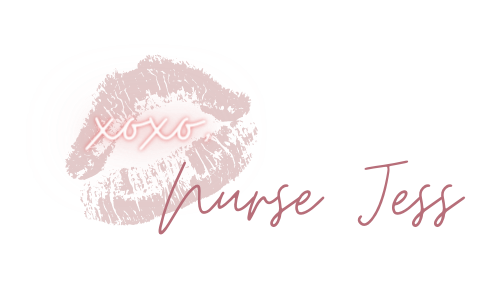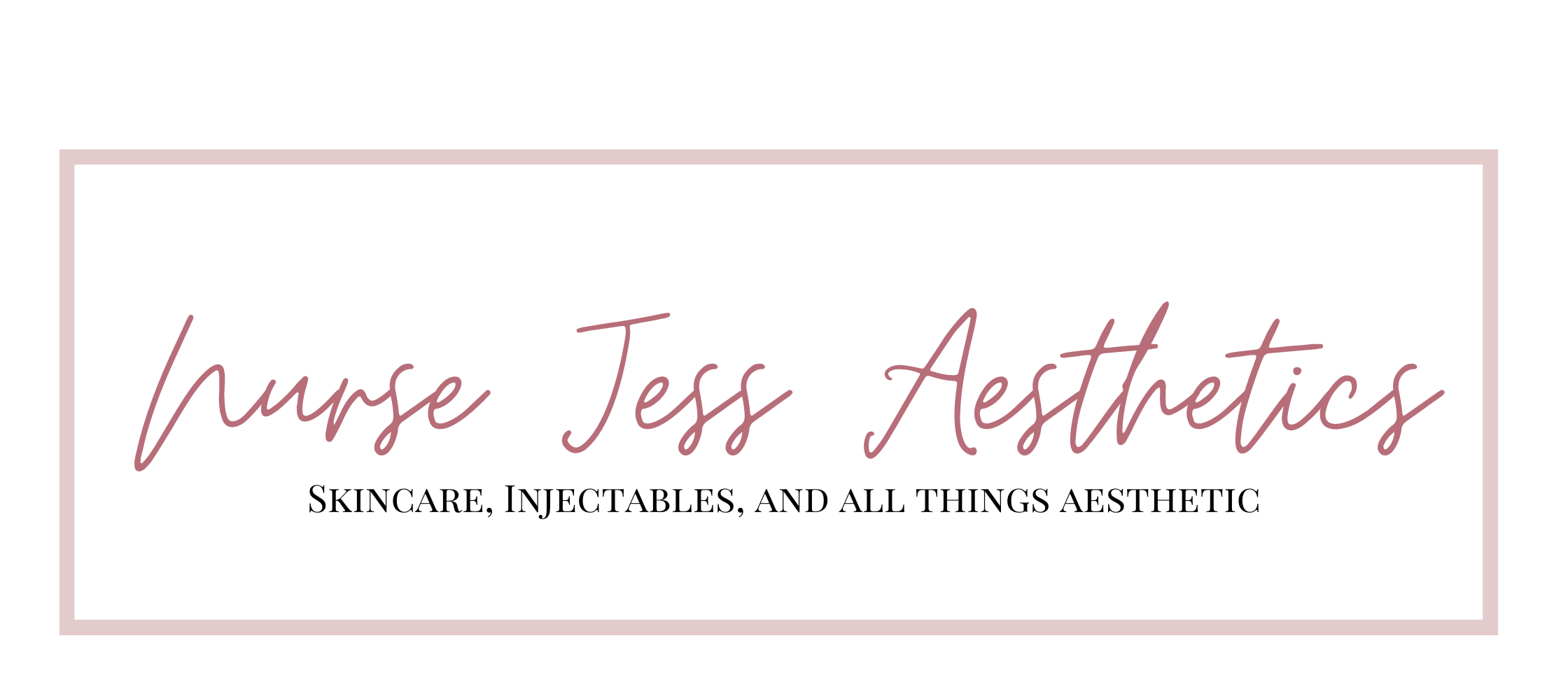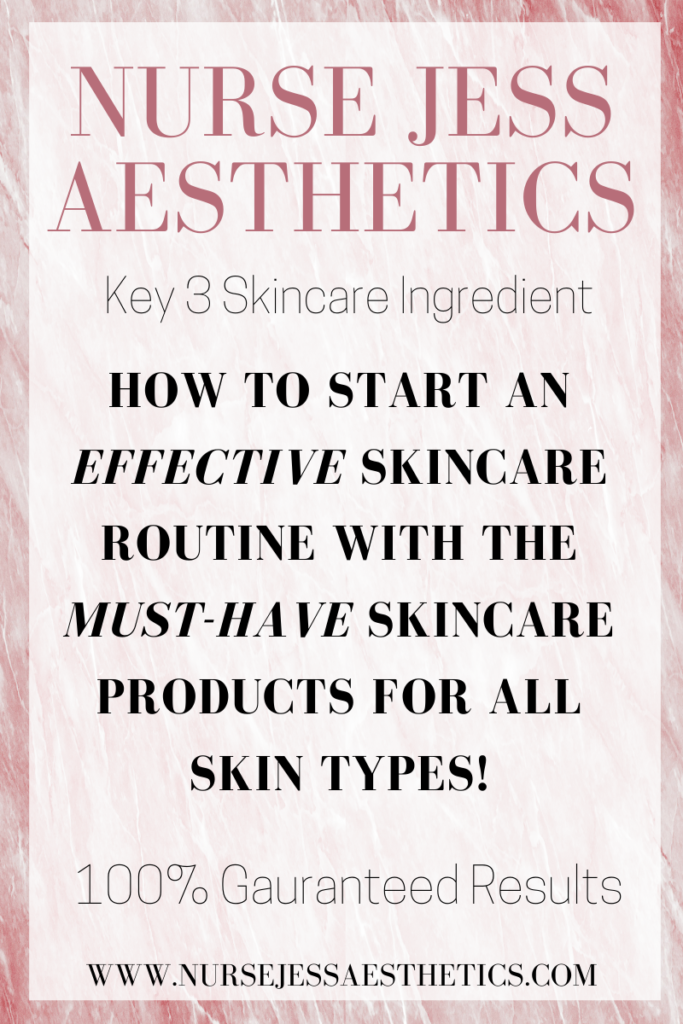
Starting a consistent and effective skincare routine can be overwhelming, confusing, and expensive. With so many different skincare brands and products on the market, it’s hard to know which products you should invest in, and how and when to use them.
Without professional help, you can easily end up with hundreds of skincare products cluttering your cabinet and a routine that is doing more damage to your skin than good.
If you need help starting a simple and effective skincare regimen, keep reading. Below you will find my simple guide to building your very own routine using only three must have active ingredients.
These three products are the foundation of an effective skincare routine for all skin types that are scientifically proven to be the most effective in anti-aging and to produce near-flawless looking skin.
Sunscreen – The Skincare Staple that Literally Saves Lives

And before you ask, the answer is no – SPF in your make-up does not count!
While we’ve come very far from our days of bathing in baby oil, and have responsibly moved on to lathering up with some variation of SPF, the plain truth is, it’s not enough! Sunscreen should be worn generously and daily. Yes, that’s right – daily!
Benefits of Daily Sunscreen Use:
- Prevention of UV Damage to the skin (think texture and discoloration)
- Decreased risk of Skin Cancers and Precancerous Lesions
- Minimizes the risk of PIH (post-inflammatory hyperpigmentation, like the little spots that stick around after a pimple heals)
When to Use and Why You Should
This should be applied in the morning. Get in the habit of putting it on daily, even if it is raining or you are not leaving your house. UV rays come through windows and clouds too.
A good rule of thumb is unless you need a flashlight to see, you need to put on sunscreen. As part of your routine, sunscreen should be applied as your last product before applying makeup.
And before you ask, the answer is no – SPF in your make-up does not count!
Let’s Talk Science
The concentration of the sun protection factor is often too low to be effective in make-up. You would have to apply approximately several times the normal amount of make-up to get the same protection from one nickel-sized amount of sunscreen.
When choosing a sunscreen, I always recommend using a physical sunscreen of at least SPF 30. Protecting your skin from environmental aggressors is so important when combatting signs of aging and pigmentation, as well as protecting your skin from skin cancers. Wrinkles, sun spots, texture issues, and melasma (read more about melasma here [link to melasma blog]), can all be attributed to excessive sun exposure in one way or another.
Physical sunscreens use minerals like zinc oxide and titanium dioxide to deflect harmful UV rays from ever being absorbed into your beloved skin. These active ingredients also cause the least amount of irritation, making physical sunscreens safe for all skin types.
Worried about having a white cast appearance from a zinc-based sunscreen? Below are links to some of my favorite physical sunscreens that will leave your skin feeling smooth and looking flawless!
Nurse Jess’s Recommendations
- Medical Grade
- Over the Counter
Coola Classic Face Organic Sunscreen
Bare Republic Mineral Face Sunscreen Lotion
Vitamin C – Sunscreen’s Best Friend
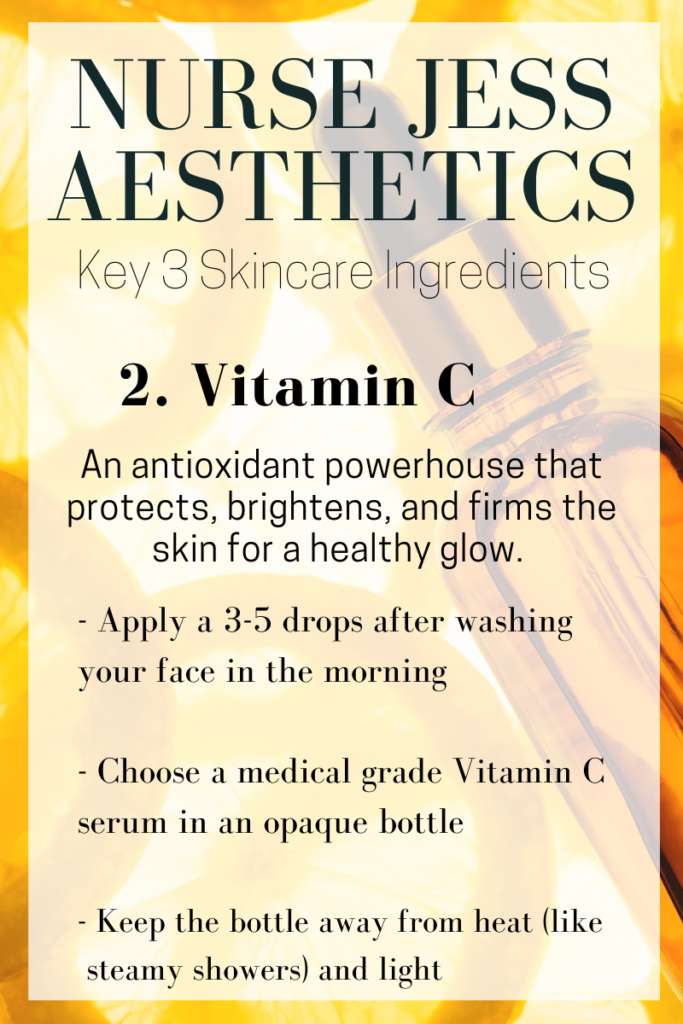
Sunscreen and Vitamin C are a package deal. Just like the Kardashians and their followers, these two thrive off of each other!
Vitamin C is a well known antioxidant that is beneficial to our immune system, but it is also just as beneficial for your skin health in a topical form!
Benefits of topical Vitamin C:
- In a serum form acts, it as a powerful antioxidant, protecting your skin from environmental aggressors such as air pollution and UV damage
- Stimulates collagen production to help strengthen the skin and improves elasticity and firmness
- When used in conjunction with sunscreen, it boosts the effectiveness of sun protection
- Helps prevent and lighten skin discoloration and pigmentation
Vitamin C is most easily absorbed and utilized by the skin in the form of L-Ascorbic acid. Look for this ingredient in your morning antioxidant serum.
When to Use
Just like Sunscreen, this also should be applied in the morning. Vitamin C should be applied in the morning after cleansing your skin. When using a medical-grade formula, you only need about 3 drops to cover your face with a thin layer of product. A little bit goes a long way!
How to Store
The molecular structure of Vitamin C, or L-Ascorbic Acid, is not very stable, especially when exposed to heat, light, and oxygen.
This is why I only recommend a medical-grade Vitamin C serum. The stability and effectiveness are rigorously tested and held to higher standards than products you can buy at a store.
Be sure to always screw the cap on tightly and to keep your Vitamin C away from direct sunlight and heat – like a steamy shower if your bathroom is small! Serums that are packaged in dark-colored dropper bottles are better protected from oxidation, which causes the breakdown of the active ingredient.
Nurse Jess’s Recommendations
Great for normal, oily, or acne prone skin. Phloretin CF protects your skin from environmental aggressors like pollution and UV rays, fights discoloration, and stimulates collagen to firm skin. It’s also great for acne prone skin and first time Vitamin C users. This serum contains zero added fragrance – so the smell may not be what you expect – but the vast benefits completely outweigh this detail. Proven to be stable and effective for up to SIX months after opening the bottle.
Ideal for dry, combination, or normal skin, SkinCeuticals’ C E Ferulic features a synergistic antioxidant combination of ferulic acid and pure vitamin C and E to enhance your skin’s protection against environmental damage caused by free radicals. In addition to antioxidant protective benefits, this formula improves signs of aging and photodamage to reduce the appearance of lines and wrinkles while firming and brightening your complexion. Proven to be stable and effective for up to SIX months after opening the bottle.
Your Nighttime Necessity – A Retinoid

You may have heard of Retin-A, Tretinoin, or retinol serum. These products are a Vitamin A or derivative thereof, with robust anti-aging benefits.
Benefits of Retinoids:
- Reduces the appearance of wrinkles
- Decreases oil production
- Controls acne breakouts
- Minimizes the appearance of pores
- Lightens discoloration from acne, sun damage, age spots, etc.
How to Use
Incorporate retinoids into your nightly skincare routine slowly.
Apply a pea-sized amount to a clean and dry face. You can then seal your retinoid in with a night-time moisturizer.
The first week only apply your retinoid every 3 days. If your skin tolerates this well, increase the frequency of your retinol application to every other night. When your skin adjusts to every other night, try using it every night!
It’s okay if you are unable to use a retinoid every single night, some skin types are just too sensitive.
It is normal to experience redness, irritation, dryness, and flakiness. Your skin is shedding to reveal a brighter healthier complexion. This lasts for a week or two on average but can last up to six weeks. Power through this awkward phase…you won’t regret it!
When to Stop Using
Retinoids are not recommended for those who are pregnant or breastfeeding. There are pregnancy safe alternatives you can use that will yield similar benefits that I talk about in “a blog coming soon linked here”.
You should also stop the use of retinol before certain skincare services, like some lasers or chemical peels – let your skincare professional know you are using retinoids regularly before booking a service for your safety.
Be Patient with Your Retinoid
Remember, retinoids are working at a cellular level. It can take up to 12 weeks of consistent use to be able to see a noticeable difference in your skin.
Nurse Jess’s Recommendations
- Renova .02%
This is a low dose prescription grade formulation for all skin types. Please consult a dermatologist office to purchase this retinoid. - Altreno .05%
A prescription strength retinoid with soluble collagen & sodium hyaluronate, a form of hyaluronic acid, known to help skin retain its moisture.
- Sente Bio Complete Serum
Unlike traditional retinoids that the skin may not tolerate well, this retinol-based serum combined with the power of Heparan Sulfate Analog (HSA), work together to smooth fine lines and wrinkles, and restore smoothness and softness to your skin.
A skincare professional can help determine which retinoid is right for you. I highly recommend anyone looking to up their skincare game to book a consultation with a trusted esthetician, aesthetic nurse, or a Derm PA/NP.
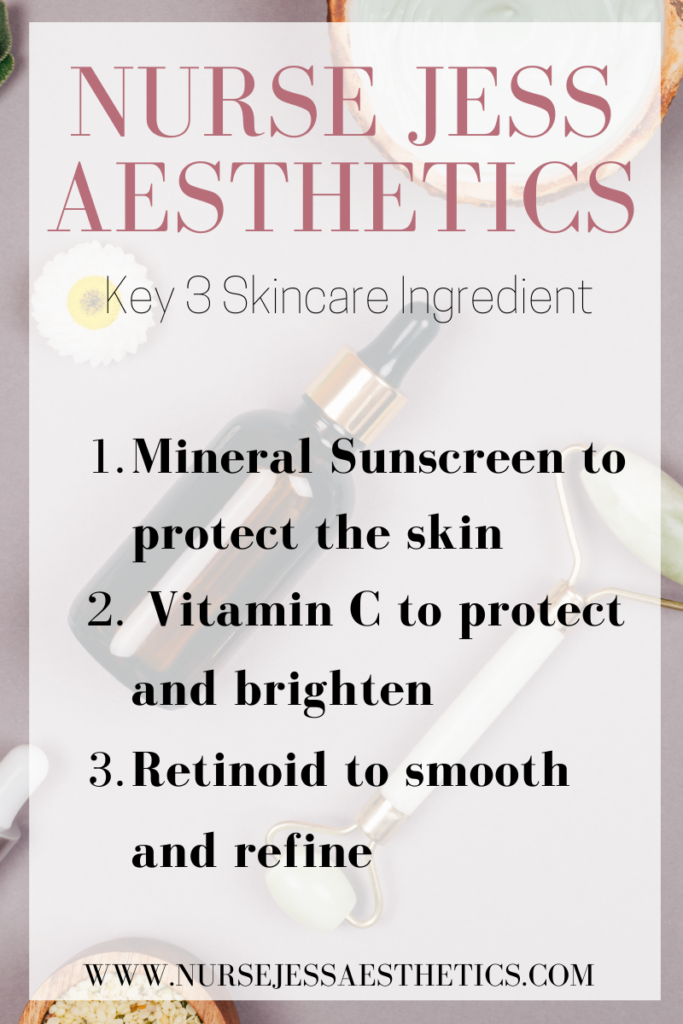
Hopefully, I would never have to choose just three skincare products, but if I did, these three products would be at the top of my list. Looking for more guidance or have a question about anything mentioned in this blog – reach out to me directly!
